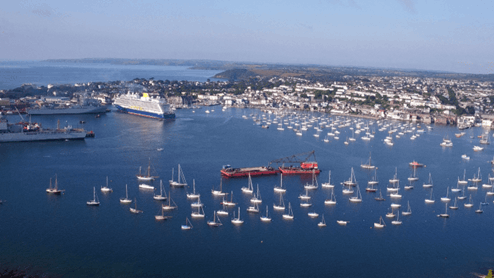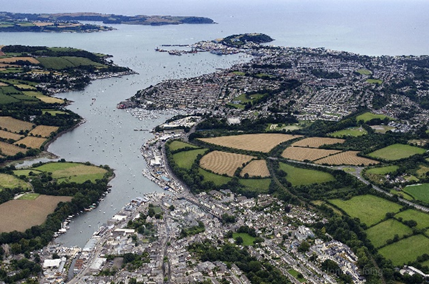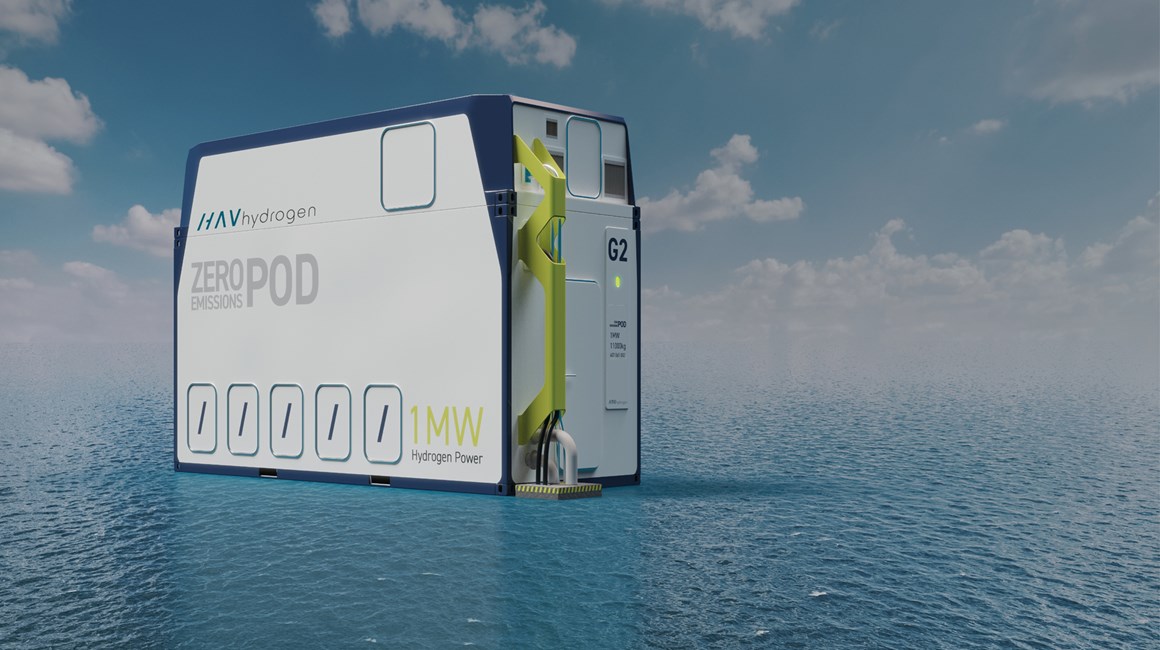Unique electric ferry and powered-buoy project at Falmouth wins green marine backing from Government

A world-first project to design and build a prototype electric passenger ferry charged by a powered mooring buoy at Falmouth Harbour is a step closer following the announcement of Government support through the Clean Maritime Demonstration Competition.
The £4.2million MorVoRen (Cornish for Mermaid) Project is an expert partnership from industry and academia led by green engineering design team Marine Zero with FalRiver Ferries, Falmouth Harbour, Pelagic Design, Solis Marine Engineering and the University of Plymouth collectively creating and operating a fully electric demonstrator ferry and powered buoy for the busy Falmouth to St Mawes route in the Fal Estuary which sees more than a million passengers a year on the water.
The Department for Transport has announced MorVoRen as one of the successful Round 3 projects of its Clean Maritime Demonstration Competition which could unlock funding for more than 70% of the scheme – with the partnership needing to find the remaining 30%.
Marine Zero’s Tim Munn says, “This is a fantastic opportunity for Falmouth and local businesses to lead the way in the decarbonisation of marine transport in the UK and globally. There are, however, many hoops still to pass through before MorVoRen can get the go-ahead - with the project currently going through Innovate UK due diligence checks, alongside an internal analysis of costs currently underway by the project partners.”
If the projects proceeds, a challenging two-year time-frame would see the fully electric Domestic Passenger Vessel (DPV) and powered mooring buoy (PMB) designed, built, certified and operating between Falmouth and St Mawes. This would put Falmouth, Cornwall and the UK on the international map for innovative technologies and clean maritime advancements with a significant impact on the reduction of CO2 emissions and other pollutants which affect the local area.
The demonstrator fully electric ferry would be operated by Fal River while the unique powered mooring buoy would be operated by Falmouth Harbour with potential for other electric vessels to “plug in” and charge. Access to power for vessels is challenging in many harbours including Falmouth - and the PMB solution working with the local energy supplier would make access possible for many.
Globally there are currently 30 million recreational boats and based on predicted trends there will be 1 million recreational electric boats by 2030. Commercial boats are in addition to this, with an expected combined annual reduction in CO2 being more that 180m tonnes in the UK alone resulting from this type of mooring technology.

- Mar 04, 2024

